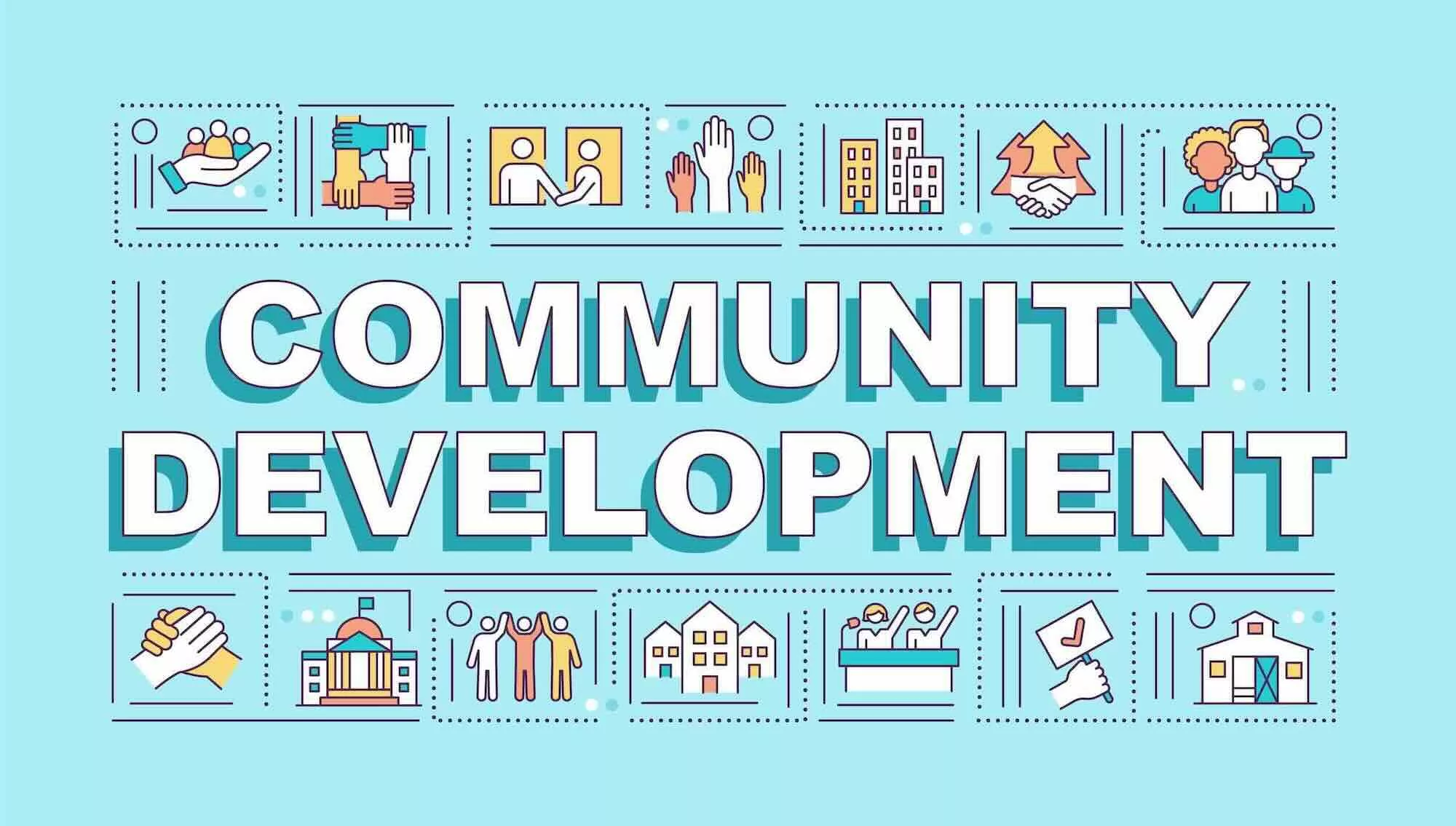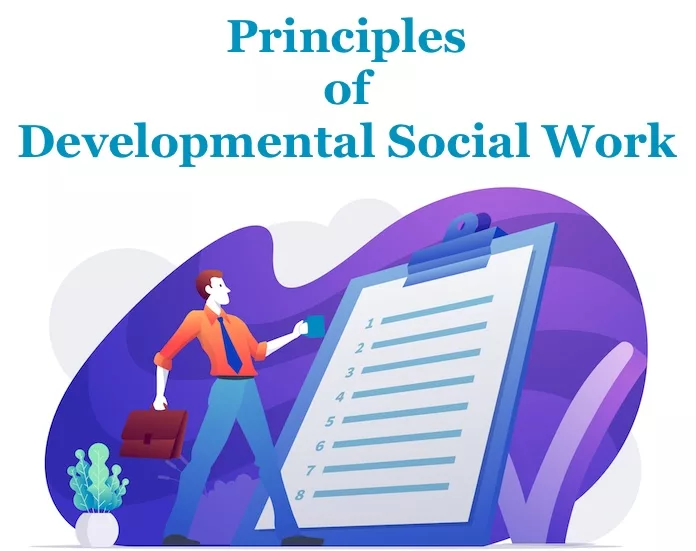Essential Guide to Development in Social Work
(Quick Summary Section) All You Need to Know About Social Work Development
Developmental social work is a specialized field within social work that centers on promoting and facilitating social, human, and community development. It operates under the belief that positive growth and change can be achieved through systematic efforts. Developmental social workers work to enhance individual and community well-being by addressing social and economic inequalities, improving living conditions, and empowering people.
The historical development of social work is a complex journey, originating in the late 19th century with the emergence of “charity organization societies.” The Progressive Era in the United States saw the concept of social development taking shape, emphasizing holistic approaches to social work and development. Community development and social work became closely linked, emphasizing sustainable change and community empowerment.
 2024 Guide to Development Social Work
2024 Guide to Development Social Work
In the mid-20th century, developmental social services introduced a proactive approach to social issues, emphasizing early intervention, social planning, and policy development. Today, social work and development are instrumental in creating a more just and equitable society, addressing a broad range of social challenges, from poverty to healthcare and education.
Developmental social work focuses on key aspects, including social development, human development, and community development. It advocates for social justice, the protection of human rights, and equitable, inclusive societies. Practitioners work closely with clients to design personalized strategies, promoting self-empowerment and resilience.
The principles of developmental social work guide the practice, emphasizing a strengths-based approach, empowerment, human rights, cultural sensitivity, and an ecological perspective. Collaboration, prevention, evidence-informed practice, and community development are central principles, working towards sustainable development and well-being for individuals and communities.
Want to explore social work development in further detail? Keep on reading for detailed information on this topic.

See Also: Social Work Clients & Best Questions Social Workers Ask | Examples, Templates & Tools
|
DETAILED SECTION |
|
If you’re ready to further explore the intricacies of social work and social development, proceed to our detailed sections below that provide a detailed overview. |
Table of Contents: Best Guide on Social Work Development
Keep on scrolling down this page to read each section or click any link below to go directly to that section.
- Developmental Social Work Definition
- Historical Development of Social Work
- Key Aspects of Developmental Social Work
- Principles of Developmental Social Work
- Rural and Urban Community Development in Social Work | Development Social Work
- Sustainable Development in Social Work
- Social Work in Developing Countries
- How to Nurture Social Work Professional Development
- Conclusion | All You Need to Know About Development Social Work
- FAQ | 2024 Social Work Development Job Aid
Don’t Miss: Best Social Work Administrator Guide
What is Developmental Social Work? | Developmental Social Work Definition
Developmental social work is a specialized area within the field of social work that focuses on promoting and facilitating:
- social development,
- human development, and
- community development.
Developmental social work is rooted in the belief that individuals, families, and communities can achieve positive growth and change through intentional and systematic efforts.
What Does a Developmental Social Worker Do?
Developmental social worker works to enhance the well-being of individuals and communities by addressing social and economic inequalities, improving living conditions, and empowering people to reach their full potential. Their role is multifaceted and can encompass various responsibilities, depending on the specific population they serve and the setting in which they work.
Now that we have the developmental social work definition, we can move to the historical development of social work. Let’s tackle this together!

Do you have anything you’d like to add to our developmental social work definition or our guide in general? If so, contact the Social Work Portal Team.
Historical Development of Social Work | Overview of Social Work Development
The historical development of social work is a rich and complex journey that has evolved over time, driven by the need to address social issues and improve the well-being of individuals and communities. This development can be traced through key milestones and significant changes in the field of social work, highlighting the:
- intertwining of social development in social work,
- community development in social work, and
- developmental social services.

History of Social Work Development
The roots of historical development of social work can be found in the late 19th century, during a period of rapid industrialization and urbanization in Western countries. This era marked the birth of the “charity organization societies,” which were among the earliest formal structures to address social issues. These organizations laid the groundwork for what would become the department of social work and development in many universities and institutions.
The Evolution of Social Work and Community Development | Development Social Work
The concept of social development in social work began to take shape during the Progressive Era in the United States, a period characterized by reform and social activism. Advocates like Jane Addams and Florence Kelley played pivotal roles in shaping the field. Addams, co-founder of Hull House in Chicago, pioneered a holistic approach to social work and development, emphasizing the importance of addressing the root causes of social problems.
Social work and community development became increasingly intertwined as the field matured. Social workers recognized the significance of engaging with communities to promote sustainable change.
This approach acknowledged that social development in social work is not limited to individual interventions but extends to the broader community and society. Community development in social work became a means of empowering communities to take control of their own development, fostering self-reliance and social progress.

Related: Best Guide for Forensic Social Workers
Modern Trends in Social Work and Development | Development Social Work
The mid-20th century marked a significant shift in social work development with the advent of the concept of developmental social services. This approach sought to proactively prevent social problems and promote positive growth, rather than simply responding to crises. It emphasized the importance of early intervention, social planning, and policy development as key tools for achieving lasting social change.
As the field of social work and development continued to evolve, it expanded its scope to address a wide range of social issues, including:
- poverty,
- healthcare,
- education, and
- mental health.

Modern Trends of Development in Social Work
Government agencies, nonprofit organizations, and educational institutions increasingly embraced social work as a profession with its own body of knowledge and methods, often establishing specialized department of social work and development to train and support professionals in this crucial field.
Today, the historical development of social work continues to influence the field. Social work and development have become vital components of creating a more just and equitable society.
Practitioners in this field engage in a wide range of activities, from direct client service to policy advocacy, all to advance social development in social work and improve the well-being of individuals and communities. With modern trends covered, it’s time to move to key aspects of developmental social work.
Key Aspects of Developmental Social Work
Developmental social work encompasses several key aspects that guide the practice of social workers dedicated to fostering social development, human development in social work, and community development in social work. These aspects of development in social work are essential for addressing social disparities and promoting equitable, sustainable, and inclusive societies.
In the sections below, we’ll explore aspects of development social work in greater detail. Let’s go!
Do you have feedback on social development in social work provided in this guide? Click here to contact the Social Work Portal Team
Social Development in Social Work | Social Work and Social Development
Social work and social development, along with the efforts of a developmental social worker, are central to prioritizing the advancement of social well-being and addressing the reduction of social disparities.
In the realm of development social work, these dedicated professionals work tirelessly to create a more just and equitable society, all while passionately advocating for social justice and the protection of human rights. It is within this critical context that social work and social development take center stage.
The aspect of development in social work underscores the importance of initiatives and policies aimed at enhancing the overall quality of life within a society. Here, the developmental social worker plays a pivotal role in orchestrating efforts that span various facets of community life.
 Social Work and Social Development
Social Work and Social Development
These may include championing education programs to ensure equal access and opportunities, advocating for affordable housing to secure stable living conditions, working towards improved healthcare access for all, and fostering economic opportunities to bridge the ever-persistent social gaps.
Social work and social development, intertwined with the dedication of the developmental social worker, form a dynamic force committed to creating a more inclusive, fair, and harmonious society. Through their unwavering commitment and strategic endeavors, they strive to build a world where social disparities are minimized, social justice is upheld, and human rights are protected, thereby enhancing the overall quality of life for the community at large.
Related: Best Social Work Supervisor Job Aid | All You Need to Know About Supervision in Social Work
Human Development in Social Work | Social Work and Human Development
Human development in social work is a cornerstone of the profession, with developmental social workers focusing on the growth and well-being of individuals. At the heart of social work and human development lies the mission to empower individuals to unlock their full potential, improve their overall quality of life, and overcome a wide range of challenges, including poverty, mental health issues, and substance abuse.
This client-centered approach is what distinguishes developmental social work as it dedicates itself to the individual’s unique needs, strengths, and vulnerabilities. A developmental social worker, specializing in human development in social work, plays a pivotal role in helping individuals lead fulfilling lives.

Social Work and Human Development
By collaborating with clients, they design and implement personalized strategies, often encompassing counseling, rehabilitation, and the creation of tailored personal development plans. These comprehensive plans are crafted to address the specific hurdles and goals of each individual, thereby fostering self-empowerment, resilience, and an improved quality of life.
In the world of social work and human development, the developmental social worker serves as a guide, mentor, and advocate, helping individuals navigate the complexities of life and providing the support and tools needed to achieve their aspirations. By embracing the principles of human development in social work, these professionals work tirelessly to ensure that every individual has the opportunity to thrive, regardless of the challenges they may face.
Read More: Best Refugee Social Worker & Asylum Case Manager Guide
Community Development in Social Work | Social Work and Community Development
Community development in social work is a cornerstone of the profession, and it underscores the significance of empowering communities to become the architects of their own destinies. In the realm of social work and community development, the emphasis is placed on strengthening the capacity of communities to not only identify their needs and aspirations but also to address them effectively.
This approach aligns seamlessly with the mission of developmental social workers, who actively collaborate with community members to enhance the social infrastructure, broaden access to resources, and establish community-based services.
 Community Development in Social Work
Community Development in Social Work
In the context of social work and community development, the developmental social worker is a catalyst for change, working hand in hand with community residents to cultivate social cohesion and foster a shared sense of purpose. These dedicated professionals are instrumental in empowering communities to take an active role in shaping their future, thereby creating a more resilient, self-reliant, and harmonious society.
Projects within community development in social work can span a wide spectrum, from tangible improvements like enhancing local infrastructure to the intangible, yet equally crucial, aspects of organizing community events and workshops. These initiatives serve as a testament to the commitment of social work and community development in fostering the growth and well-being of communities, ensuring that their voices are heard, and their dreams are realized.
In the hands of developmental social workers, communities thrive and become dynamic agents of positive change. Next, let’s dive into the principles of developmental social work.

Don’t Miss: Best Social Worker Cultural Competence Guide | Job Aid
Principles of Developmental Social Work
The principles of developmental social work provide a guiding framework for social workers and professionals dedicated to fostering positive, lasting change within individuals and communities. Rooted in a strengths-based perspective and a resolute commitment to social justice, these principles underpin the practice of development social work, emphasizing empowerment, holistic well-being, and sustainable development.
Here are some key principles of developmental social work:
- Strengths-Based Approach: Development social work emphasizes identifying and building upon the strengths and assets of individuals and communities.
- Empowerment: Empowering individuals and communities are central to developmental social work. Practitioners work to enhance the capacity of clients to take control of their lives and make decisions that affect them.
- Human Rights and Social Justice: It advocates for equitable access to resources, opportunities, and services for all individuals and communities, and it addresses systemic barriers that perpetuate inequality.
- Self-Determination: Clients are encouraged to define their own goals and determine their own development path.
- Cultural Sensitivity: Developmental social work recognizes the importance of cultural competence. Practitioners are mindful of and respect the cultural values, beliefs, and practices of the individuals and communities they work with.
- Ecological Perspective: This approach considers the complex interplay of individual, family, community, and societal factors that influence development. Social workers assess and address the multiple systems that impact their clients.

Core Principles of Developmental Social Work
- Collaboration and Participation: Social workers engage in collaborative partnerships with clients, communities, and other professionals.
- Lifespan Perspective: Developmental social work takes into account the different developmental stages and transitions that individuals go through, from infancy to old age.
- Prevention and Early Intervention: A focus on prevention and early intervention is important in developmental social work.
- Evidence-Informed Practice: Practitioners in developmental social work use research and evidence to inform their interventions and decision-making processes.
- Reflective Practice: Social workers engage in ongoing self-reflection and critical thinking about their practice.
- Community Development: Developmental social work includes a strong focus on community development. It seeks to strengthen the capacity of communities to address their own issues and promote positive change.
Overall, developmental social work is about fostering personal and collective growth, promoting well-being, and creating environments that support the full potential of individuals and communities. It is a holistic and empowering approach to social work that aligns with the values of social justice and human rights.
With principles covered, it’s time to see what rural and urban community development in social work looks like.
Popular Article: Ultimate Guide for Immigration Social Workers
Rural and Urban Community Development in Social Work | Development Social Work
Community development in social work is a versatile field that addresses the unique needs of both rural and urban community development in social work. While these settings differ significantly, social workers play a crucial role in fostering positive change in both contexts.
Social Work in Rural Development and Urban Community
In rural areas, social work focuses on overcoming challenges such as limited access to services, economic diversification, agricultural support, and community engagement in the context of rural and urban community development in social work. The goal is to improve the well-being of rural residents while preserving their strong sense of community.
Social work in rural development also extends to urban settings as part of rural and urban community development in social work, where social workers coordinate services, address housing and homelessness issues, support youth development, enhance safety, and promote cultural competency to serve the diverse urban population effectively.
With that covered, let’s continue to sustainable development in social work.

Do you have any further insight into social work and human development? If so, contact the Social Work Portal Team.
Social Work and Sustainable Development | Sustainable Development in Social Work
Social work and sustainable development are an essential component of the field, aiming to meet the needs of the present without compromising the ability of future generations to meet their own needs.
Environmental Advocacy
Social work and sustainable development involve social workers advocating for environmental sustainability by raising awareness about ecological issues and promoting eco-friendly practices in communities. They work to address environmental injustices and foster a greater sense of responsibility towards the environment as part of social work development.
 Sustainable Development in Social Work
Sustainable Development in Social Work
Social Equity
Social equity is another critical aspect of social work and sustainable development. Social workers strive to reduce disparities in access to resources and opportunities, ensuring that all individuals and communities have a fair chance at a better future.
Community Resilience
Social work and sustainable development help communities build resilience in the face of climate change and other environmental challenges. This involves disaster preparedness, community-based adaptation, and strengthening social support systems in line with the principles of social work development.
Next, we’re moving to social work in developing countries. Let’s go!

Do you have additional feedback on sustainable development in social work? Click here to contact the Social Work Portal Team.
Social Work in Developing Countries | Social Work and Social Development
Social work in developing countries plays a pivotal role in addressing the specific challenges faced by these nations as they strive for economic, social, and political progress.
Poverty Alleviation
Social work in developing countries focuses on poverty alleviation through various means, including income generation projects, microfinance initiatives, and skills training programs, aligning with the goals of social work development.
Healthcare and Education
Healthcare and education are central to social work development in developing countries, where social workers often work to improve access to healthcare and education. They advocate for better healthcare systems and work to ensure that children and adults have access to quality education in the context of social work development.
Human Rights and Social Justice
Human rights and social justice are cornerstones of social work in developing countries. Social workers in these nations are champions of human rights and social justice, working to protect vulnerable populations, combat discrimination, and promote democratic values and social equality as part of social work development.
Last but not least, let’s take a look at some great tips for nurturing social work professional development.
Do you have any input on social work and community development in general? Contact the Social Work Portal Team.
How to Nurture Social Work Professional Development | Developmental Social Worker Growth
Professional development is essential for social workers to enhance their skills, knowledge, and competencies, and to stay current with evolving trends and best practices in the field.
Here are some key ways of nurturing social work professional development:
- Continuing Education: Social workers should pursue continuing education opportunities to stay updated on the latest research, interventions, and ethical guidelines. Social work professional development can involve attending workshops, seminars, conferences, or taking online courses.
- Supervision and Consultation: Seeking supervision or consultation from experienced colleagues or supervisors is crucial for professional growth. These interactions can provide insights, guidance, and support in challenging cases and help social workers refine their skills.
- Licensing and Certification: Many social workers are required to obtain and maintain licensure or certification in their respective states or countries. This social work professional development involves meeting specific education and practice requirements, passing exams, and fulfilling continuing education requirements.
- Networking: Engaging with peers, mentors, and organizations can lead to valuable connections, collaborations, and information-sharing opportunities.
- Research and Publications: Engaging in research or publishing articles, books, or reports in the field can contribute to social work professional development and enhance one’s knowledge and credibility.
- Self-reflection: Regular self-reflection is vital for personal and professional growth. Social workers should assess their strengths and weaknesses, identify areas for improvement, and set goals for their professional development.

Nurturing and Growth of Social Development Social Workers
- Specialized Training: Depending on their practice areas, social workers may seek specialized training in areas like child welfare, mental health, substance abuse, gerontology, or healthcare. This social work professional development and training can help them provide more effective and informed services to their clients.
- Cultural Competence: Social workers should continuously work on developing cultural competence to better understand and serve diverse populations.
- Ethical Guidelines and Supervision: Social workers should regularly review and discuss ethical guidelines and dilemmas with supervisors and colleagues.
- Technology and Social Media: Staying up to date with technological advancements and social media trends is important in the modern era – it can be used for outreach, advocacy, and communication with clients and the community.
- Self-care: Social development social workers often face demanding and emotionally taxing situations. Practicing self-care is a crucial aspect of social work professional development to prevent burnout and ensure personal well-being.
- Leadership and Advocacy: Engaging in leadership roles within organizations and advocating for social justice issues can help social workers make a broader impact on their communities and the profession.
See Also: Essential Guide for Mental Health, Substance Abuse & Addiction Social Workers
Do you have any input on historical development of social work that we haven’t mentioned? If so, contact the Social Work Portal Team.
Conclusion | Everything You Should Know About Development Social Work
Developmental social work is all about making a positive impact on individuals, families, and communities. It’s about promoting social growth, human development, and community empowerment. So, if you’re passionate about creating a fair and equitable society and helping people reach their full potential, this field might be your calling.
If you’re considering a career in social work, remember that professional development is key. From continuing education to building a strong network and practicing self-care, nurturing your skills and knowledge is essential for making a lasting impact in the field.
So, if you’re committed to making the world a better place, social work, especially in the developmental context, is a fulfilling and meaningful path to consider. We wish you all the best on your journey!
Don’t Miss: Best Social Work Processes with Examples & SOAP Notes – All You Need
FAQ | 2024 Social Work Development Job Aid
What’s the developmental social work definition?
Developmental social work is a specialized area within the field of social work that focuses on promoting and facilitating:
• social development,
• human development, and
• community development.
What are the key aspects of development social work?
Development social work encompasses several key aspects that guide the practice of social workers dedicated to fostering social development, human development in social work, and community development in social work. These aspects of development social work are essential for addressing social disparities and promoting equitable, sustainable, and inclusive societies.
What are some key development social work principles?
The principles of developmental social work provide a guiding framework for social workers and professionals dedicated to fostering positive, lasting change within individuals and communities.
Rooted in a strengths-based perspective and a resolute commitment to social justice, these principles underpin the practice of development social work, emphasizing empowerment, holistic well-being, and sustainable development.
What’s the role of social work in developing countries?
Social work in developing countries plays a pivotal role in addressing the specific challenges faced by these nations as they strive for economic, social, and political progress.
Note: Content on this website (socialworkportal.com) is copyrighted and protected under applicable copyright laws. Unauthorized reproduction, distribution, or use of any content from the website, without explicit written permission, is strictly prohibited. Read: Terms of Use.
Social Work Portal Disclaimer: Social Work Portal is not a social work agency and we do not refer social workers. This web site is provided for educational and informational purposes only and does not constitute providing medical advice or professional social and healthcare services. The information provided should not be used for diagnosing or treating a health problem or disease, and those seeking personal medical advice should consult with ... Read our full disclaimer here: Social Work Portal Disclaimer.

Image sources: Stock.adobe.com


